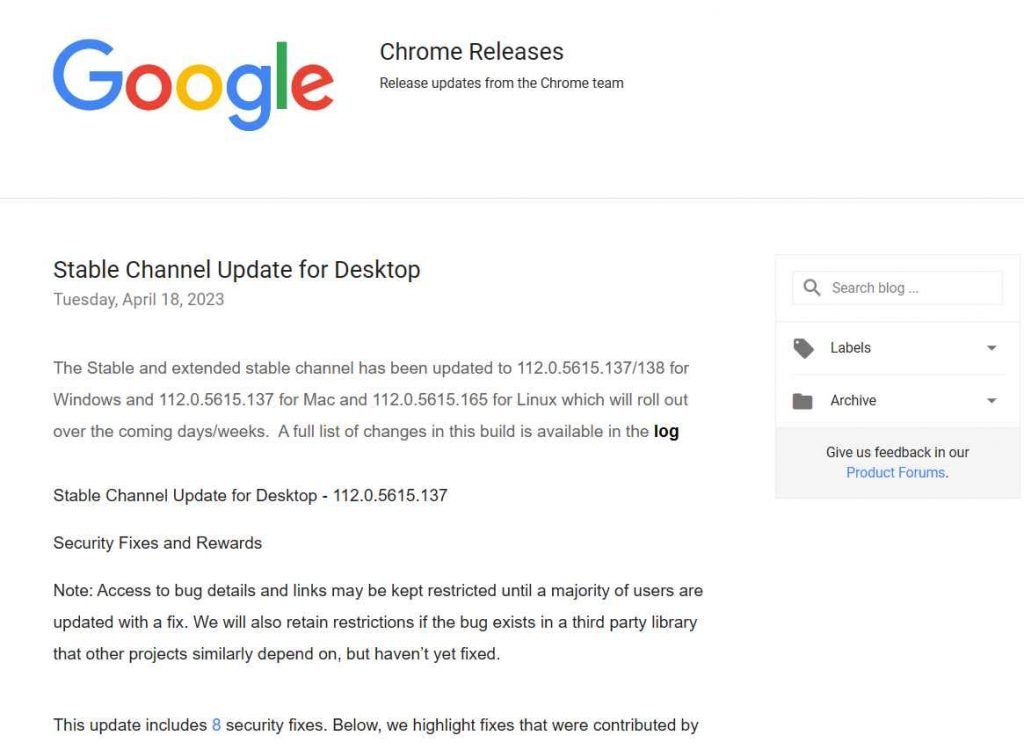The previous week, Google put out an emergency security fix for its browser, and today, the company rolled out another emergency security update to address a vulnerability that is being exploited in the wild.
The update is now available for desktop versions of Google Chrome as well as the Android version of Chrome. Users are encouraged to install updates as soon as they are made available in order to safeguard their devices against prospective attacks that exploit these vulnerabilities.
Google has listed five of the eight security problems that were addressed in the most recent version to Google Chrome. Google says that these issues have been handled. The official Chrome Releases blog has provided documentation of these recent improvements. On the other hand, Google does not make publicly known the security flaws that were found during the company’s own internal investigations.

Out-of-bounds memory access in the Service Worker API is a high-risk vulnerability (CVE-2023-2133).
Out-of-bounds memory access in the Service Worker API is a high-risk vulnerability (CVE-2023-2134).
Use after free in DevTools is a high-risk vulnerability (CVE-2023-2135).
Integer overflow in Skia, a high-risk vulnerability( CVE-2023-2136).
Heap buffer overflow in sqlite, rated as medium severity (CVE-2023-2137).
According to Google’s findings, the security flaw CVE-2023-2136 is being actively exploited in the wild.
A 2D graphics library called Skia, which is frequently used in web browsers, operating systems, and other software applications, has a flaw known as CVE-2023-2136, which is an integer overflow vulnerability. An integer overflow happens when an arithmetic operation results in a number that is more than the maximum limit of the integer type. This causes the value to wrap around and become either much smaller or much bigger than what was meant for it to be. An integer overflow may be avoided by ensuring that the maximum limit of the integer type is not exceeded.
This indicates that threat actors have already started exploiting this vulnerability in order to target systems and breach them. The results of a successful exploit may be somewhat variable, but they almost always involve at least one of the following: unauthorized access to sensitive information; data corruption; or even a total system takeover.
The Chrome Stable channel has been updated to version 112.0.5615.137 for Windows and Mac, and it has been updated to version 112.0.5615.135 for Android; these updates will roll out over the next few days or weeks.

Information security specialist, currently working as risk infrastructure specialist & investigator.
15 years of experience in risk and control process, security audit support, business continuity design and support, workgroup management and information security standards.











